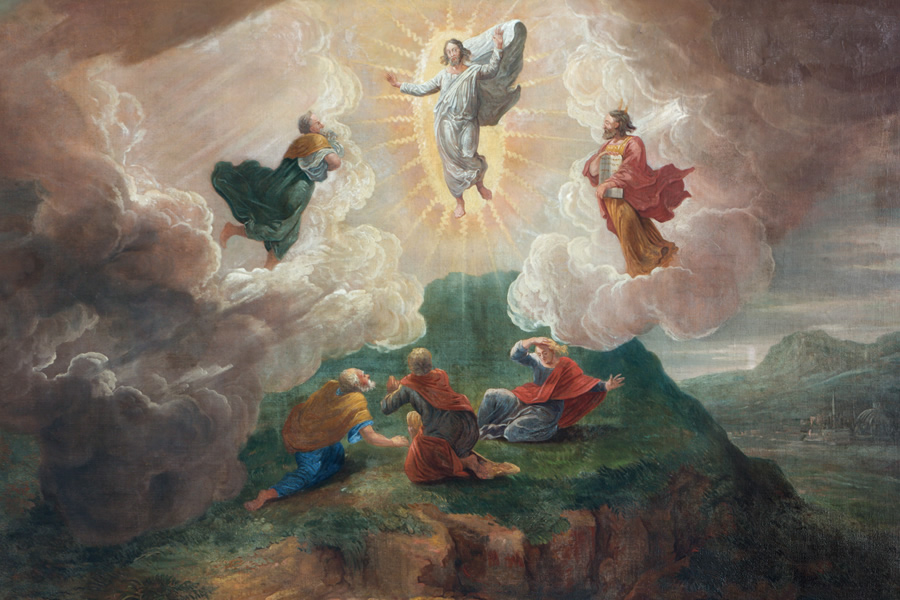
The Glory of the Transfiguration
08-06-2023Weekly ReflectionReflection from mycatholic.lifeAll three of the Synoptic Gospels record the event of the Lord’s Transfiguration (Matthew 17:1–8, Mark 9:2–8, Luke 9:28–36). Just prior to the Transfiguration, all three Gospels also record Jesus’ trip to Caesarea Philippi with His disciples, located about thirty miles north of the Sea of Galilee. Caesarea Philippi was a primarily pagan Greek town occupied by the Romans. The Greek god Pan was worshiped there in a cave thought to be bottomless and often referred to as the gate to the netherworld because of its association with the pagan god. It was there that Jesus asked His disciples who they thought He was. Peter declared, “You are the Messiah, the Son of the living God.” Jesus then blessed Peter and announced His intent to build His Church upon Peter, declaring that “the gates of the netherworld shall not prevail against it…” (Matthew 16:16–18).
After this significant exchange, Jesus began revealing to His disciples His impending fate—His journey to Jerusalem to suffer and die. Peter resisted this revelation, to which Jesus responded sternly, correcting Peter’s human thinking with divine wisdom (Matthew 16:22–23). This is the context of the Feast of the Transfiguration we celebrate today.
First, Jesus proclaimed the triumph of His Church over evil. Second, He informed them that this victory would be achieved through His own suffering and death. Although the first message is encouraging, the second one is challenging to accept. According to the Gospels, Jesus allowed His disciples about a week to grapple with these teachings, a period that must have been tough for them. Understanding their struggle, Jesus took His three closest companions, Peter, James, and John, up a high mountain. There He was transfigured before them, radiating pure white light, conversing with Moses and Elijah, and being affirmed in His identity by the Father.
This event was likely meant to reinforce His disciples’ faith after a week of pondering Jesus’ foretold suffering and death, along with His exhortation that they must follow Him. The Transfiguration affirmed Jesus’ divinity and His relationship with the revered figures of Moses and Elijah. Furthermore, the Father in Heaven confirmed Jesus as His divine Son with whom He was well pleased. After the Resurrection and Ascension of Jesus, these three Apostles shared their experience of the Transfiguration, fortifying others in the faith. This story is still shared today to strengthen us as we bear our own crosses. The Feast of the Transfiguration is strategically placed forty days before the Feast of the Triumph of the Cross. Thus, the Transfiguration should be seen as a preparation for both the Cross of Christ and our participation in that triumph. According to the Gospel, we are called to take up our crosses and follow Jesus for the glory of the Father, the fulfillment of His will, and the good of the Church, which will always prevail against the gates of hell. As you celebrate the Transfiguration today, look at this event as a foretaste of the reward awaiting you, and a source of encouragement to endure all sufferings for the final victory of Christ. The Christian life, as stated by Jesus Himself, is about suffering and dying out of love and with unwavering hope. By uniting our trials with Christ’s Cross, we share in His glorious victory for all eternity.
My Transfigured Lord, You promise suffering and death to all who follow You, but You also promise the hope that awaits those who endure. Grant me the grace to endure every cross in life, uniting my sufferings with Yours, so that I may one day partake in the glory of eternal life in Heaven. Jesus, I trust in You.
BACK TO LIST